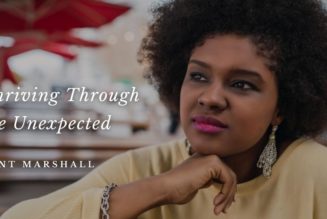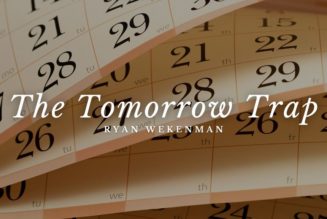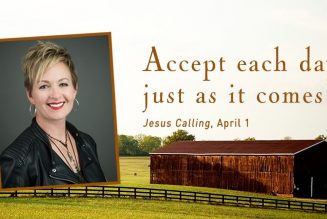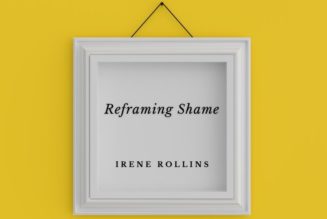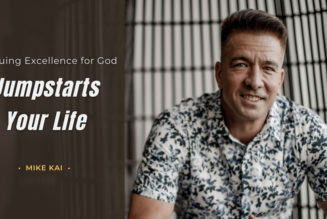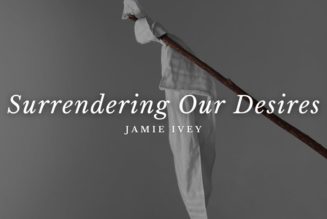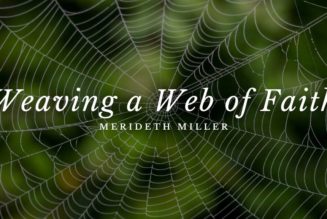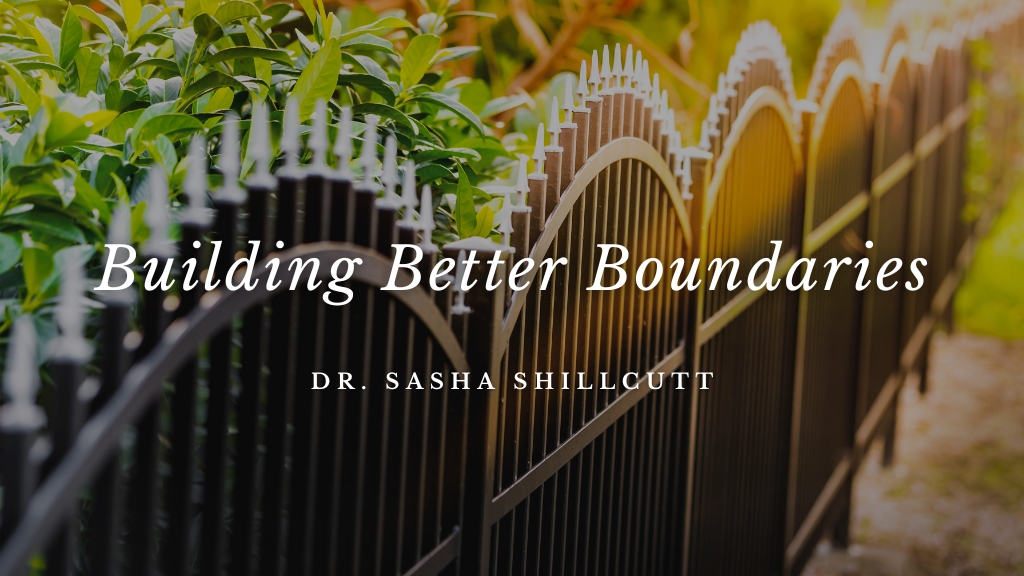
“Your holy hands are absolutely capable of caring for me and meeting my needs. Please help me relax in Your sovereign watchcare—trusting You to do what is best.”
– Jesus Listens, November 8
If you were like me when the pandemic hit, you felt a sudden urge to serve. As a physician and mom of four, I felt responsible to care for people in my community, in my family, and in my workplace. I made lists and spent hours online trying to figure out the safest way to care for my children, my parents, and my patients. At the same time, I found myself struggling to know the best way to lead my large online community of women physicians. It felt as if everywhere I turned, someone needed me, and I was failing to serve them in the capacity I envisioned I was called to do.
Called to serve
We are often called to serve others. In our minds, we are doing the most-Christ like endeavor by giving others our time and energy. Service can fill a void. Perhaps we are grieving and through serving others, our hearts become aware of deep gratitude, and we begin to heal. Service to others can give us a purpose. Perhaps we’ve been struggling to find our place in our community, and suddenly, we are needed. It feels good to serve others. It fills our hearts and minds in a positive feedback loop that what we are doing is important, even if at the end of the day, we may be empty.
Intentions matter
There’s a slippery slope however, of serving others for the right reasons. While our intentions may be pure, we can find that helping others may in fact be feeding our egos. We may hear ourselves thinking, Only I can do this task, or, No one can do it as good as I can, so I have to do it. When we find ourselves thinking we must serve, it can lead us on the path of significant burnout. Suddenly, we are overcommitted, over functioning, and over performing. We are serving at the cost of our own families, our own time, and our own mental and physical wellbeing. We find ourselves helping others while failing to help ourselves.
Burned out
This was exactly where I found myself in the Fall of 2020; burned out, exhausted and completely drowning. I couldn’t understand how I had let something good – serving others – become so toxic in my life. I didn’t know where to draw lines around helping at work, overextending myself to my family, and serving my clients and those I reach through my business, Brave Enough. It wasn’t until I understood I was missing a critical, crucial item in my life: radical, beautiful, boundaries.
Boundaries
Simply put: a boundary is a line that allows you to stay well. Boundaries are beautiful fences that allow us to live out our priorities. Boundaries allow us to protect our energy and our time so that our list of priorities match our to-do list and our calendars.
When I started learning about boundaries, I realized that boundaries don’t just keep toxic, unhealthy things out of your life: they keep the good things in your life. They prevent wonderful things from becoming items that pull you down and become negative. In all my education and leadership training, I had never understood how powerful boundaries are for protecting our mental and physical health, especially when we find ourselves in the service of others.
Saying no
I’ve learned that being clear with people on what I can and cannot do is critical to maintain my wellbeing. I’ve learned that saying no is a muscle, and the more you do it, the easier it becomes. I’ve also learned I cannot expect people to read my mind or know how busy I am; I must communicate my boundaries clearly, and often.
When we start to say no and clearly state what we have the energy to do, we open up a great dialogue for others to also share their boundaries with us. We stop overcommitting ourselves and overstretching ourselves. We find that we have more energy to do the things we truly are passionate about. We serve from a more authentic place. We allow ourselves to be honest with our abilities, our energy, and our time. We protect ourselves from developing unhealthy numbing behaviors to decompress.
Courage
Setting personal and professional boundaries takes courage. Most of the time when we are a person who keeps showing up, people expect us to say yes to more and more tasks. But when we find the deep confidence and bravery to say no, we grow in respect among our peers. Those who care for our best interests will only admire us more. They will see that the times we do say yes, we show up with more energy and more of our talents and gifts, because we simply have more to give.
I encourage you to be brave and share your boundaries with others you do life with. And then be open enough to let others share their boundaries with you. Your health will thank you.
About The Author
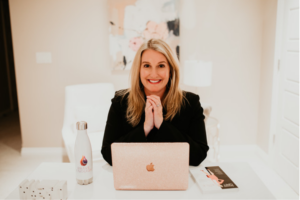 Dr. Shillcutt’s newest book, Brave Boundaries: Strategies to Say No, Stand Strong, and Take Back Control of Your Time is available nationwide. To find more tips for work-life balance, follow her on Instagram @becomebraveenough and check out her website at www.becomebraveenough.com.
Dr. Shillcutt’s newest book, Brave Boundaries: Strategies to Say No, Stand Strong, and Take Back Control of Your Time is available nationwide. To find more tips for work-life balance, follow her on Instagram @becomebraveenough and check out her website at www.becomebraveenough.com.


